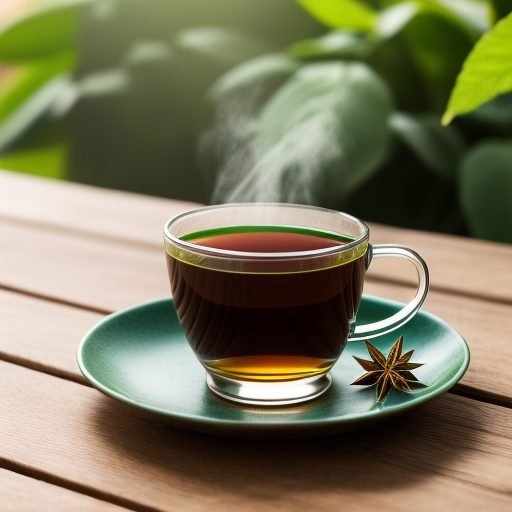Vegan Globetrotter is supported by our audience. When you purchase through one of our links, we may earn a small affiliate commission. As an Amazon Associate I earn from qualifying purchases. Your cost is not affected.
==================
In the quest for robust health, many of us find ourselves turning to nature’s pharmacy, exploring the age-old wonders of “Herbs That Kill Viruses in the Body.” Amidst the constant barrage of viral threats, these botanical allies, steeped in tradition and backed by evolving scientific insights, stand as potential guardians of our well-being. Join me on a journey through the green realms of antiviral herbs, where we’ll unearth their secrets, understand their roles in immune support, and navigate the nuances of incorporating them into our daily lives.
So, let’s delve into this herbal guide with curiosity, acknowledging that while these remedies may not be miraculous cures, they could hold the key to fortifying our body’s natural defenses.

In the search for natural health remedies, many individuals turn to herbs that can help combat viral infections. These botanicals have been used for centuries across different cultures and are still relevant in modern times due to their potential antiviral properties. Understanding how various herbs may affect viruses and the immune system can empower you to make informed choices about their use in promoting your health.
Herbal remedies are not a cure-all, but some have shown promise in enhancing the body’s defense mechanisms and interfering with the replication cycle of viruses. Exploration into the scientific evidence behind these plants can offer insights into which herbs might be helpful during times of viral illness and how they can be used safely.
Key Takeaways
- Certain herbs may possess properties that enhance the immune system’s defense against viruses.
- Herbal efficacy is under scientific investigation, adding credibility to their potential use in health regimens.
- Knowledge of proper preparation, dosage, and possible side effects is crucial for the safe use of antiviral herbs.
Understanding Viruses and Herbal Remedies

Viruses are microscopic infectious agents that rely on living cells to replicate. They can cause a variety of illnesses, ranging from the common cold to more severe diseases like COVID-19. Your body employs the immune system to defend against these viral invaders. Herbal remedies have been used traditionally to support the immune system and offer natural antiviral properties. While they do not cure viruses, some herbs can potentially contribute to the body’s defense by boosting immune response or interfering with virus replication.
Common Antiviral Herbs:
- Garlic: Known for its immune-enhancing properties, garlic has been seen to combat certain viral infections.
- Echinacea: Often recommended to help fight colds and flu.
- Elderberry: Suggested to reduce the severity and duration of viral symptoms.
- Oregano: This herb contains compounds that have been studied for their antiviral effects.
How to Use Herbs:
- Teas: Drinking herbal teas can provide comfort and aid immune health.
- Supplements: Capsules or liquid extracts offer concentrated forms of herbs.
- Topical Applications: Some herbs can be used in creams or ointments for skin conditions.
Remember, consult your healthcare provider before starting any herbal regimen, especially if you have existing health conditions or are taking other medications. Herbal remedies can interact with medications and not all herbs are safe for everyone.
For detailed information about antiviral herbs, consider reading about herbs with antiviral activity or exploring other natural antivirals.
Common Antiviral Herbs:
- Garlic: Known for its immune-enhancing properties, garlic has been seen to combat certain viral infections.
- Echinacea: Often recommended to help fight colds and flu.
- Elderberry: Suggested to reduce the severity and duration of viral symptoms.
- Oregano: This herb contains compounds that have been studied for their antiviral effects.
How to Use Herbs:
- Teas: Drinking herbal teas can provide comfort and aid immune health.
- Supplements: Capsules or liquid extracts offer concentrated forms of herbs.
- Topical Applications: Some herbs can be used in creams or ointments for skin conditions.
Remember, consult your healthcare provider before starting any herbal regimen, especially if you have existing health conditions or are taking other medications. Herbal remedies can interact with medications and not all herbs are safe for everyone.
For detailed information about antiviral herbs, consider reading about herbs with antiviral activity or exploring other natural antivirals.
Mechanisms of Antiviral Herbs
Antiviral herbs operate through various mechanisms in your body to combat viral infections. Understanding these mechanisms helps you appreciate how herbal remedies contribute to your health.
Immune System Support
Herbs that boost the immune system help your body’s natural defense against viruses. Examples include tulsi and echinacea, which increase the production of immune cells, making it easier for your body to fight off infections. The immune response is crucial in the effectiveness of these antiviral herbs.
Direct Antiviral Effects
Some herbs can interfere directly with the virus’ ability to cause disease. Garlic, for instance, contains allicin, which has been shown to exhibit antiviral properties by disrupting the functions vital to the survival of viruses. This direct attack on pathogens limits the ability of the virus to multiply in your body.
Inhibition of Viral Replication
Inhibiting viral replication means stopping the virus from making copies of itself within host cells. Herbs like green tea, high in catechins, can impede the replication process of viruses. The antiviral effects of herbal extracts against various viruses have been supported by their mechanism of action in interrupting viral replication pathways.
Viral Envelope Interaction
Certain herbal compounds can interact with the envelope of viruses, which is essential for their infectivity. Licorice root contains glycyrrhizin, which disrupts the virus’s envelope, making it less able to attach to and enter host cells. Research suggests this interaction can contribute to reduced viral transmission and infection rates.
Common Antiviral Herbs
Incorporating antiviral herbs into your diet can support your immune system in defending against viral infections. Each herb brings unique benefits and can be an effective addition to your wellness routine.
Echinacea
Echinacea is widely recognized for its immune-boosting properties. It can help reduce the severity and duration of cold symptoms. Regular use of echinacea supports overall health and may reduce your chances of catching viral infections.

Garlic
Garlic’s antiviral effects come from a compound called allicin. This compound has been shown to help fight against viral infections, including the common cold.

Ginger
Ginger is not only a great flavor enhancer, but it also has potent antiviral properties. It’s particularly effective in soothing sore throats and reducing nausea.

Elderberry
Elderberries contain compounds that are directly antiviral and are most effective when taken at the first sign of a cold or the flu. Elderberry supplements have been noted to reduce the symptoms of upper respiratory infections.

Turmeric
Turmeric is a powerful herb with anti-inflammatory and antiviral benefits, largely due to its active ingredient, curcumin. This compound can help reduce the replication of viruses in the body.

Basil
Sweet basil, particularly its extracted oil, has been identified to have antiviral properties. It can be effective against respiratory infections and support your immune system.

Oregano
Oregano, especially in its oil form, contains compounds like carvacrol that exhibit antiviral activity. Oregano oil can be potent against viruses, offering a natural means to support your health.

Use in Cooking and Meal Preparation
Incorporating antiviral herbs into your cooking is not only a potential way to enhance your immune defense but also adds flavor and depth to your meals. Here are a few herbs that you can easily integrate into your cooking routine:
- Garlic: A staple in many cuisines, garlic possesses natural antiviral properties. Finely chop or crush garlic and let it sit for a few minutes to activate its compounds before adding to sauces, dressings, or marinades.
- Ginger: Known for its anti-inflammatory benefits, ginger can be grated into stir-fries, boiled to make tea, or blended into smoothies for a warming kick.
- Turmeric: With its active ingredient, curcumin, turmeric is a powerful herb with antiviral effects. It’s excellent in curries, soups, or even as a turmeric latte. To boost absorption, pair it with black pepper.
- Echinacea: Although more commonly used in teas and supplements, the flowers and leaves of echinacea can be incorporated into dishes for an immune support.
Here’s how you can add these herbs to specific meals:
| Meal Time | Suggestion |
|---|---|
| Breakfast | Add ginger to a fruit smoothie. |
| Lunch | Mix garlic into salad dressings. |
| Dinner | Stir turmeric into rice or stew. |
Remember, while these herbs are a healthy addition to your diet, they should complement a balanced meal plan and are not a substitute for medical treatment. Always consult a healthcare professional before significantly altering your diet or relying on herbs for medicinal purposes.
Herbal Preparation and Usage
When exploring natural antivirals, it’s crucial to understand how to prepare and use herbs effectively. Each method extracts active compounds to support your body’s viral defenses.
Teas and Infusions
To prepare teas or infusions, steep the herbs in hot water. For example, Echinacea can be steeped for 10-15 minutes to create a tea that supports the immune system. Use one tablespoon of dried herbs per cup of water for infusions.
Tinctures and Extracts
Tinctures are concentrated herbal forms created by soaking herbs in alcohol. To use a tincture, such as one made from elderberry, place a few drops under your tongue or add to a glass of water. They are typically taken in small doses, generally 1-2 ml, up to three times a day.
Topical Applications
Herbs like oregano can be applied topically as essential oils or creams. To apply, dilute the essential oil with a carrier oil and rub onto the skin to utilize its antiviral properties, paying attention to avoid sensitive areas, such as eyes and mucous membranes.
Scientific Evidence of Herbal Efficacy
Recent studies have shown that certain herbs possess properties which may be useful in combating viral infections. For instance, compounds found in Citrus spp., such as oranges, contain bioactive components that have shown potential in supporting COVID-19 management. While research is ongoing, these findings suggest a promising direction for adjunctive treatments.
Specifically, substances like Allium sativum (garlic) and Allium cepa (onion) exhibit antiviral capabilities, and some evidence supports their role in modulating immune responses to infections. Additionally, Mentha piperita (peppermint) is recognized for its antimicrobial and antiviral effects that might be beneficial against respiratory viruses.
An array of spices and herbs, including tulsi and antioxidants such as vitamin C, have been identified as immunity boosters, which could help your body’s natural defense against viral infections. While not a replacement for vaccines or antiviral drugs, including such herbs in your diet could complement your overall immune health.
Herbs with Scientific Backing:
- Citrus species: May offer adjuvant support in viral infection management.
- Garlic & Onion: Recognized for antiviral properties.
- Peppermint: Exhibits antiviral and antimicrobial activity.
Remember, these herbal remedies are not cure-alls and should not be considered as substitutes for medical treatment. However, their incorporation into your health regimen may provide some supportive benefits. Always consult with your healthcare provider before starting any new treatment, particularly if you are managing a serious condition like COVID-19.
Safety and Side Effects of Herbal Remedies
Before using herbal remedies to combat viruses, it’s crucial to be aware of their potential risks, proper dosages, and side effects. These factors can significantly affect their safety and effectiveness.
Potential Interactions With Medications
Herbal remedies can interact with prescription medications, either enhancing or counteracting their effects. For instance, St. John’s Wort, known for its antiviral properties, may reduce the effectiveness of certain drugs, such as birth control pills or antidepressants. Always consult with a healthcare provider before combining herbal remedies with medication.
Recommended Dosages
Adhering to recommended dosages is vital when using herbs. For example, echinacea, often used for its antiviral effects, should not be taken for more than 8 weeks consecutively. Exceeding recommendations can increase the risk of side effects or diminished efficacy.
Known Side Effects
While many herbs are safe when taken correctly, some may cause side effects. Herbal remedies like elderberry extract might cause nausea, dizziness, or numbness when consumed in large doses. It’s essential to start with small doses to monitor how your body responds.
Integrating Herbs Into Your Health Regimen
Incorporating antiviral herbs into your daily health routine can be a supportive addition to a balanced lifestyle. It’s important to approach this integration with knowledge and a clear understanding of each herb’s potential effects. Consult with a healthcare provider before beginning any herbal regimen, especially if you have underlying health conditions or are taking medications.
Starting with Herbal Teas and Supplements:
- Begin with common herbs known for their antiviral properties like garlic and lemon balm.
- Experiment with herbal teas; they provide a gentle way to introduce antiviral herbs into your system.
Incorporating Herbs Into Meals:
- Use turmeric, ginger, and oregano to add flavor and potential antiviral benefits to your cooking.
When to Take Herbs:
- Consume herbs consistently; some may need to be taken over a period to see potential benefits.
- Pay attention to how you feel after taking herbal preparations and adjust accordingly.
| Herb | Suggested Use | Notes |
|---|---|---|
| Garlic | Supplements or fresh in meals | May interact with certain medications |
| Lemon Balm | Tea or supplements | Has calming effects |
| Ginger | Fresh in meals or tea | Good for digestion |
Remember, quality matters. Look for certified organic or reputably sourced products to ensure purity and potency. Keep your expectations realistic; while herbs can support your health, they are not cure-alls and should be part of a comprehensive approach to wellbeing.
Herbs That Kill Viruses in the Body: Navigating Nature’s Antiviral Arsenal for Well-Being
As we bid farewell to our exploration of “Herbs That Kill Viruses in the Body,” let’s reflect on the rich tapestry of botanical wisdom we’ve woven. In the garden of natural remedies, these herbs stand tall as potential allies in our ongoing battle against viral invaders. Remember, incorporating them into your lifestyle is not a guaranteed panacea, but rather a thoughtful addition to your holistic well-being toolkit.

In the intricate dance of science and tradition, these herbs beckon us to consider the nuanced ways they may bolster our immune defenses. So, whether you’re sipping a comforting herbal tea, savoring a meal enriched with antiviral herbs, or seeking solace in the aromatic embrace of essential oils, let it be a mindful journey. Always consult with your healthcare provider, tread gently, and relish the harmony between nature’s gifts and our pursuit of lasting health. Here’s to a thriving, herb-infused journey toward well-being!
Frequently Asked Questions
In this section, you’ll find precise information on natural antiviral options within your diet and the beneficial properties these may carry.
Which foods possess natural antiviral properties?
Several foods are known to contain natural compounds with antiviral activity. For instance, garlic not only adds flavor to your meals but also contains compounds like allicin identified for their antiviral properties. Similarly, foods like ginger and coconut oil are celebrated for their potential to support the body against viral infections.
Can antiviral properties be found in certain teas, and how can one make such tea?
Yes, certain teas are infused with herbs that exhibit antiviral effects. To create such tea, you can steep herbs like elderberry or Echinacea, which have been recognized for their immune-boosting and antiviral capabilities. Use boiling water and allow the herbs to infuse for several minutes for a potent brew.
What are some effective medicinal plants known for their antiviral capabilities?
Medicinal plants like St. John’s Wort and Astragalus root are acknowledged for their antiviral actions. St. John’s Wort is frequently used for its numerous health benefits, including its potential to combat certain viruses. Astragalus is another example with historical use in traditional medicine for bolstering the immune response and potentially warding off viral infections.
🌱 Explore, Connect, Thrive! 🌍
Dive into a vibrant world of vegan delights and herbal wonders! 🌿 Connect with our passionate community on:
- Facebook: VeganGlobetrotter
- Instagram: VeganGlobetrotter
- Pinterest: TheVeganGlobetrotter
- Twitter: VeganGlobetrot
Discover mouthwatering recipes, insightful product reviews, and join a community dedicated to a plant-powered lifestyle! 🍏🌍 #VeganLife #HerbalHealing #PlantBasedJoy



Don't miss out
when new recipes and information are added!
Join our newsletter for free recipes,
healthy living inspiration, and special offers
You have Successfully Subscribed!